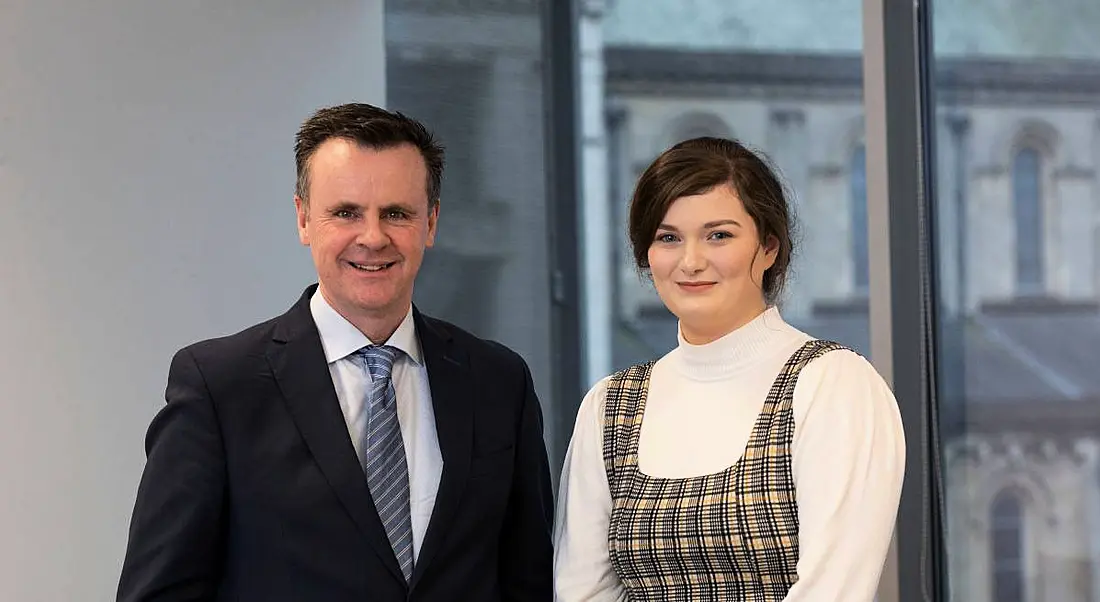Optum’s Padraig Monaghan discusses the importance of making healthcare education more accessible, not just for students but for patients.
One of the greatest societal challenges right now is health inequity. Financial barriers, geographical challenges, differences in education and even gender and ethnicity can all be factors that contribute to health inequity.
Padraig Monaghan is the managing director of Optum Ireland and UK, a health services and innovation company. He said when he thinks about health equity, the overriding factor is the current state and geographic disparity of Ireland’s healthcare services.
“When you compare Donegal to Dublin, unemployment is significantly higher than the national average, people have far less disposable income and limited access to healthcare, and there is a significant lack in specialist services – such as cancer treatment,” he said.
This inequity comes into play in healthcare education too and against this backdrop, Optum Ireland created a scholarship programme for students from under-resourced communities to help them overcome barriers to health education and increase diversity in healthcare.
“We are focused on creating opportunities for young starters who are looking to explore a career in healthcare but lack the financial means and support to do so,” he told SiliconRepublic.com.
“Through the scholarship programme, we are helping to remove some of the significant barriers to career development, increasing the number of healthcare professionals that come from under-resourced areas, and ultimately, helping to build a better healthcare system that takes a holistic view of what is best for the community.”
Monaghan said the programme has supported more than 40 students since 2018. “We have seen a 100pc pass rate, with several scholars going on to study additional degrees – such as PhDs – and pursue a promising career in healthcare and emerging technologies.”
Monaghan added the aim is about bridging the gap in students’ confidence, resources and financial means to help them academically thrive. But how does that look like from the other side?
Sophie Carlin from Donegal was one of the programme’s first scholars and studied personalised medicine at Ulster University in Derry. She graduated in 2022 with a first-class honours degree and is undertaking a PhD on treatment for childhood leukaemia, funded by the all-island Cancer Research Institute.
She said the programme made a huge difference to her life. “Without the help and support that I received, I would not be where I am today.”
Creating a future-proofed healthcare workforce
As Monaghan mentioned, geography plays a huge role in who studies healthcare. “If you want to study medicine – up until recently, you would have had to go to Belfast, Dublin, Galway or Cork. Courses may not be available in your region, incurring travel and accommodation costs which some families cannot afford,” he said. “Technology has helped and we should do our part to remove barriers for those who want to learn and join the healthcare workforce.”
Another issue can be a lack of role models. For students who grow up in communities where access to healthcare services may be limited, it can be difficult to see and be inspired by those working in the industry and understand the opportunities available.
“Disabilities are also a consideration. Ireland has the lowest employment rate in Europe for people with disabilities – and to build a successful the next-generation healthcare system, we will all need to better address barriers of prejudice or accessibility, which limit career progression,” said Monaghan. “I am particularly proud of the fact that we are supporting students with disabilities through the programme.”
In terms of future skills, Monaghan said advances in tech are having an impact on the healthcare industry. “We are supporting scholars who are studying personalised medicine with components of data analytics, genomics and genetics,” he said.
“Primary care givers are being trained in new medical devices and technologies; healthcare systems are being better supported by data analytics and healthcare population management. There will be a more personalised approach to patient care and the development of advanced technological skills will be vital for the healthcare workforce here in Ireland and globally.”
For those considering a career in the area of health, Monaghan said to remember how broad of an industry it is and how much variety there is when it comes to career opportunities.
“Pick where your passion lies within a particular field of healthcare if you are enthusiastic about reaching more people in need of care and support. Without question, the next-generation health system is emerging, right here, right now across Ireland. And these scholars will help lead the way.”
10 things you need to know direct to your inbox every weekday. Sign up for the Daily Brief, Silicon Republic’s digest of essential sci-tech news.




